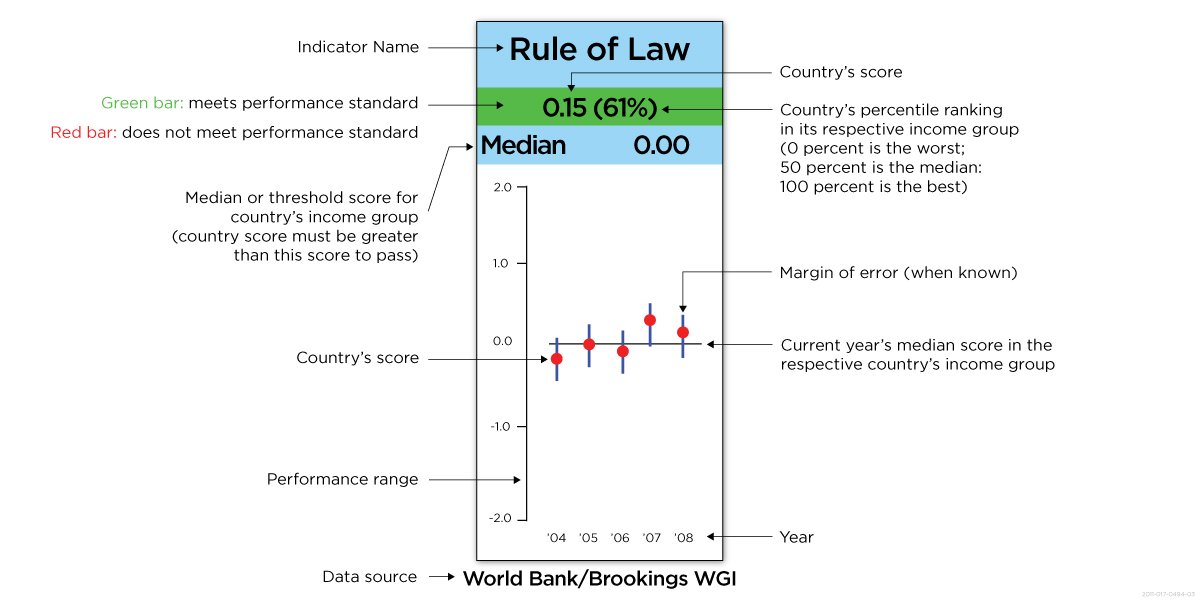
MCC’s core mission is to help well-governed poor countries fight poverty through economic growth. After all, aid is generally most effective in countries with a sound commitment to accountable and democratic governance. That’s why we place a strong focus on democracy when selecting partner countries, which creates incentives for democratic reform.
To assess the policy performance of potential partner countries – including the protection and promotion of democratic rights -- MCC embarks on a rigorous and transparent selection process every fall. As we celebrate International Day of Democracy on September 15, we wanted to highlight that in a little over a month and a half, MCC will release a key part of this yearly assessment: our annual scorecards.
Each year, as MCC identifies potential partner countries, it releases scorecards that present third-party data measuring a country’s commitment to ruling justly, investing in its people and encouraging economic freedom. Comprised of 20 indicators, these scorecards form the cornerstone of the evidence that MCC’s Board of Directors uses when choosing partner countries. Specifically, the Board first looks to see if a country is “passing” its scorecard – this means passing at least 10 out of the 20 indicators overall-- including the “hard hurdles” on the Control of Corruption indicator, and Democratic Rights. By being clear about MCC’s selection criteria, the scorecards create an incentive for governments to reform policies to improve their scorecard performance – something often referred to as the “MCC Effect.”
This year’s scorecards are set to be released in November, and they include a number of indicators measuring democratic practice, all developed by independent, third-party institutions. Two indicators explicitly capture the broad aspects of democratic rights – Political Rights and Civil Liberties – while others capture more nuanced aspects of the issue, such as Freedom of Information, Rule of Law, Government Effectiveness, and Control of Corruption.
As mentioned, our scorecards have a hard hurdle on democratic rights: this means countries must pass either the Political Rights or Civil Liberties indicators in order to pass the scorecard overall. MCC’s Board also looks closely at performance on the other indicators to get a broader sense of the situation as well.
The agency publishes the scorecards a month prior to the December Board meeting, during which the Board will use the scorecards together with any supplemental information to select countries as eligible to develop compact proposals for MCC funding.
The selection process is the just the first step in an ongoing relationship between MCC and a partner country. During both compact development and implementation, a country’s performance on democracy issues will continue to be assessed. All of MCC’s partner countries are expected to maintain or improve their commitment to democratic rights and good governance generally. Stay tuned for future blogs and updates about this year’s selection process, and see this primer on MCC’s work on Democratic Rights to learn more.

